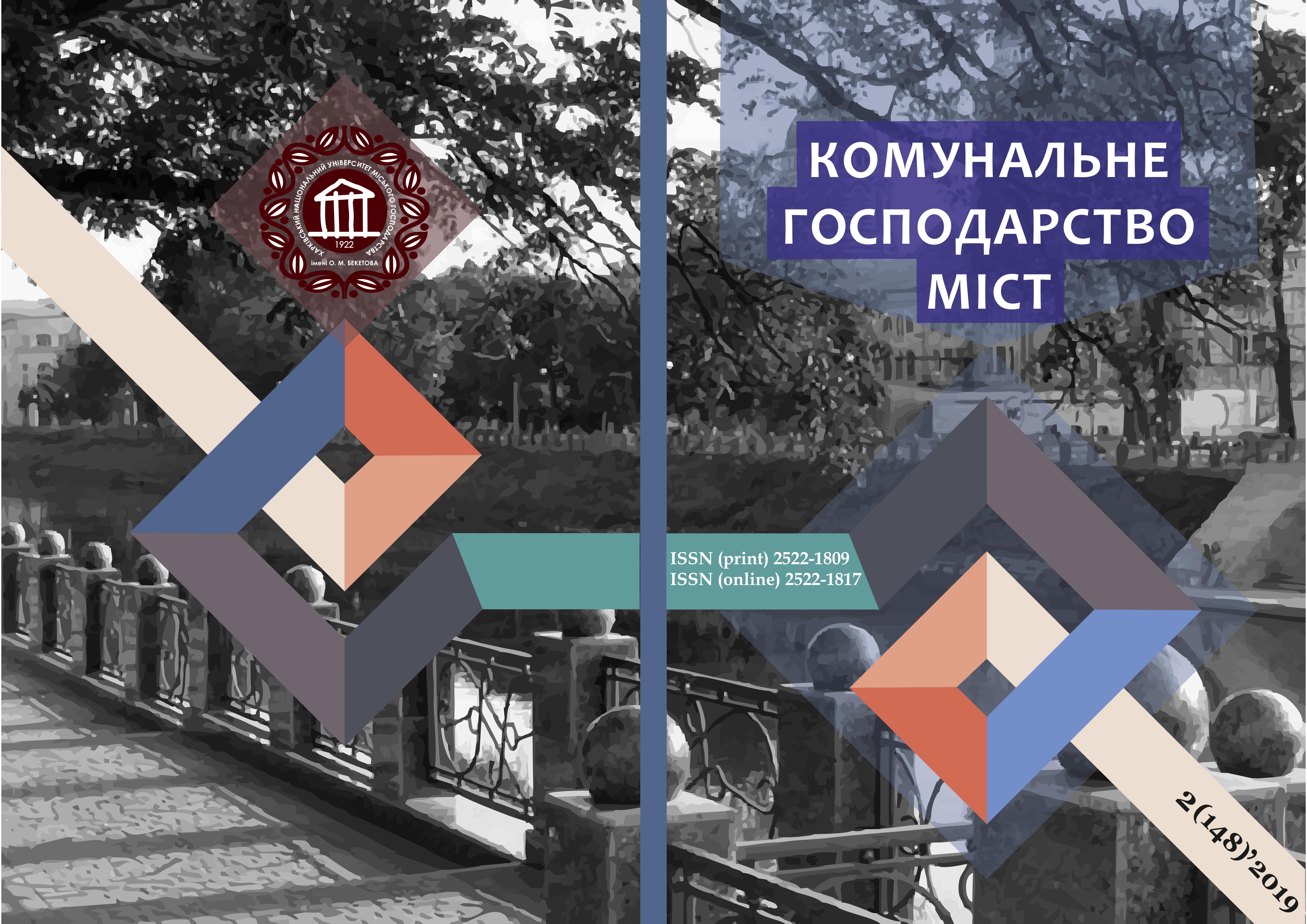COMPREHENSIVE ASSESSMENT OF THE ECONOMIC AND ENVIRONMENTAL-ENERGY EFFICIENCY OF THE USE OF "SMART HOME" TECHNOLOGIES IN HEATING SYSTEMS OF EDUCATIONAL INSTITUTIONS
Array
Keywords:
heat supply, energy saving, natural object, heating system, thermal regime, smart home, efficiencyAbstract
The results of a comprehensive assessment of the economic, environmental and energy effects of using the "smart home" technology to control the heating modes of a natural object - the communal institution "Kharkiv Palace of Children's and Youth Creativity of the Kharkiv City Council of the Kharkiv Region" (CI KPCYC) are presented. The following criteria were considered as efficiency criteria: energy effect - absolute and relative reduction of monthly and annual heat consumption; environmental effect - reduction of monthly and annual fuel consumption by the building's heat supply system, reduction of greenhouse gas emissions into the atmosphere — CO2 and pollutants — NOx in the production of heat energy; economic effect - monthly and annual reduction of fees for the use of heat and fuel by the object of research. A method for the integrated assessment of the efficiency of energy-saving measures has been created, which makes it possible to determine the indicators of energy, environmental and economic effects. In order to improve the environmental and energy and economic efficiency of the heat consumption system of a full-scale facility, it is proposed to use the “smart home” technology to control the modes of space heating, which provides for the introduction of the HERZ Smart Comfort system or its equivalent for the automated regulation of the thermal conditions of the building premises. in the comfort of providing thermal energy. For the natural object - the building of the CI KPCYC, the annual effect from the “smart” control of the heating system is estimated: energy: energy savings: 130.3 Gcal or 7.0%; ecological: reduction of natural gas consumption - 16.5 thousand m3, reduction of CO2 and NOx emissions into the atmosphere - 32.0 tons and 0.035 tons, respectively; economic: reduction of payment for heating - 249.5 thousand UAH.
References
HERZ Smart Comfort: remote control of home comfort (n.d.) Retrieved from https://voltar.com.ua/news/herz-smart-comfort-distantsionnoe-upravlenie-komfortom-doma.html.
Polivyanchuk, A., Kovalenko, Y. (2018). Improving the efficiency of thermal energy use when heating buildings through the introduction of technologies «smart home». Herald of Kharkiv National University named V. Karazin: ecology, 19, 119-126.
The Covenant of Mayors for Climate and Energy Reporting Guidelines / Covenant of Mayors & Mayors for climate and energy (2016). Adapt Offices and the Joint Research Centre of the European Commission, 78.
Alibekova, A., Shaimerdenova, G., Agilbaeva, M. (2013). Ecolodica problems of thermal power plants. Journal of Industrial Technology and Engineering, 4(09), 40-44.
Varlamov, G., Didik, I. (2016). The main features of the implementation of the principle of environ-mental equilibrium on the ecological object. Young scientist: scientific journal,1, 3, 104-107.
Maiarenko, V., Sherbak, I. (2013). Analysis of consumption of fuel and energy resources of Ukraine and their rational use. Bulletin of the NTU "KhPI". Series: Power and heat engineering processes and equipment, 14(988), 118-126.
Tariffs for heat energy for budget institutions, other consumers (except for population) and religious organizations. Communal Enterprise "Kharkiv heat networks" (2018). Retrieved from http://www.hts.kharkov.ua/KPHTS_v2_public_info_tarify.php.
Isachenko, V., Osipova, V., Sukomel, A. (1975). Heat transfer: textbook for universities. Energy, 488.
Downloads
Published
How to Cite
Issue
Section
License
The authors who publish in this collection agree with the following terms:
• The authors reserve the right to authorship of their work and give the magazine the right to first publish this work under the terms of license CC BY-NC-ND 4.0 (with the Designation of Authorship - Non-Commercial - Without Derivatives 4.0 International), which allows others to freely distribute the published work with a mandatory reference to the authors of the original work and the first publication of the work in this magazine.
• Authors have the right to make independent extra-exclusive work agreements in the form in which they were published by this magazine (for example, posting work in an electronic repository of an institution or publishing as part of a monograph), provided that the link to the first publication of the work in this journal is maintained. .
• Journal policy allows and encourages the publication of manuscripts on the Internet (for example, in institutions' repositories or on personal websites), both before the publication of this manuscript and during its editorial work, as it contributes to the emergence of productive scientific discussion and positively affects the efficiency and dynamics of the citation of the published work (see The Effect of Open Access).

